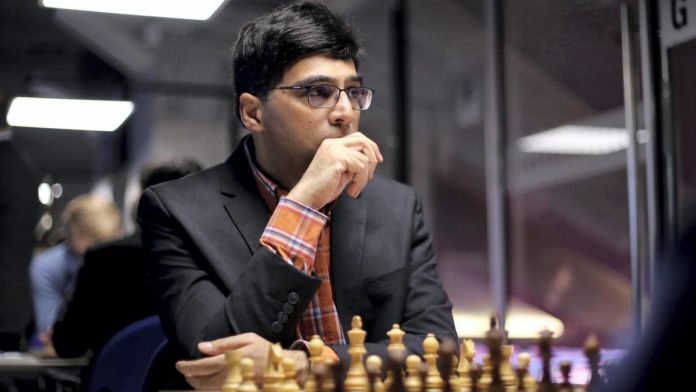
‘There’s something to be said about working towards achieving a goal without obsessing over how far you’re from it,’ Viswanathan Anand
“The pace of chess has quickened a lot in recent years,” grandmaster and former world champion Viswanathan Anand says, laughing. “That’s why a lot of players from my generation are retiring in large numbers.”
It’s true. Anand turned 50 in December, making him a senior statesman in a field now dominated by Norwegian Magnus Carlsen, 29. For many chess aficionados, Anand is the last link to a golden age in the game. Many of his great rivals of the past three decades have departed the field, struggling to find a source of motivation for a vocation so intense in its demands. Garry Kasparov, Anand’s opponent when he took his first shot at the world title in 1995, called time on his career in 2005 at the age of 42. Last year, Vladimir Kramnik, Anand’s greatest rival in the first decade of this century, abruptly retired from tournament play at 43. But Anand keeps going.
“Whenever I’ve felt satiated and sick of chess, my natural response has been to switch off and leave the game for a while,” he writes in his book Mind Master: Winning Lessons from a Champion’s Life, a thoughtful, engrossing meditation on his chess career, co-written by sports journalist Susan Ninan and published in December. “But my love for the game has never soured enough for me to walk away.”

Anand’s story is significant for many reasons. Most importantly, his career bridges a historic shift in the nature of competitive chess. It began in a fairly stable 20th-century world in which the great masters reached the peaks of their achievements after a long, rigorous process of study, match play and preparation.
That era came to an end abruptly on May 11, 1997, when IBM supercomputer Deep Blue defeated Kasparov, the reigning world champion, in a rematch after the Russian won in a contest played the previous year. Deep Blue’s victory demolished the notion computers could never work a chessboard as creatively and sophisticatedly, with the same mix of logic and inspiration, like a great chess brain.
Sometimes the greatest truths are hidden in cliches. Find your path, learn, strive and don’t fall out of love with it if the pay-off keeps you waiting
Since then, computers have revolutionized the game, processing in a fraction of a second the hundreds of possibilities created by a single move and greatly intensifying and complicating chess preparation and play. These days, when the best chess players square off, it’s often the power of their preparatory work with their respective supercomputers that tilts the result, which means that, as Anand writes, “the value of experience has diminished”. Anand’s five world championships were won at different stages of this new era. It’s unlikely that any future champion will play in a world that is transformed so radically from the beginning of their career to the end.
Anand has been an oddity on the chess scene for most of his career, describing himself in his book as “neither a Soviet or a Westerner”.
He came of age in a world where the great Soviet chess system, nurtured by the state and packed with high-level players who enjoyed access to the latest tactical innovations and drove each other to ever-greater heights, set the standard for the game. Those outside this complex tried their best to keep pace but few broke through as Anand did to get the better of Anatoly Karpov, Kasparov and Kramnik.

In one of the book’s great moments, Anand recalls beating Boris Gelfand, who was born in Belarus, for the world title in Moscow in 2012 and being invited to Russian President Vladimir Putin’s house for breakfast. After being told Anand first came to the game at a Soviet-sponsored chess club in his home town of Chennai, Putin says, “So you’re a problem we brought upon ourselves.”
In a country and culture where good sportsmen were so rare they were often content to be big fish in a small pond, Anand stands out as one of the few who can say he completely fulfilled his potential. In Mind Master, he describes his journey to the top. His early rivals in the 1990s often patronized him as a “nice guy”, a talented player who lacked the fire in his belly to be the best.
There’s something to be said about working towards achieving a goal without obsessing over how far you’re from it … once you shut out the clamor of the result and simply persevere, success is bound to be yours
Trounced by Kasparov in 1995, Anand says he realized there was nothing more arduous in sport than “the transition from being a strong player to becoming a world champion”.
Slowly, Anand sets about constructing a world that will allow him to become the best. He moves to Spain, builds a core team of high-grade “seconds” (chess trainers who help with strategy and big-match preparation) empathetic to his particular needs and alive to his weaknesses. Anand also tries to find the right combination of an amateur’s passion for the game with a professional’s steely-eyed detachment and strategic nous.
The moment he becomes the world champion in 2000 and realizes his dream at long last is a thrilling part of the book. “The way I see it, talent is a lot like a plant,” Anand writes. “When it’s watered with hard work, it grows and blooms.”

But real discipline and dedication mean you do not seek validation in results. Instead, you must focus on the process. “There’s something to be said about working towards achieving a goal without obsessing over how far you’re from it … once you shut out the clamor of the result and simply persevere, success is bound to be yours.”
The world of professional chess is unforgiving. Having grown to enjoy Anand’s success, the reader suffers with him as he loses his world title in 2013 without even landing a blow on a challenger half his age: Carlsen, who was 22 at the time. Suddenly, Anand is a member of the old guard. His results are patchy and long dry spells are punctuated by flashes of good form. It’s clear this is an irreversible, age-related decline.
But the final chapter of his book strikes a lovely note of grace, as he makes peace with himself. “Earlier, success was the cog on which everything turned. In winning, now, the primary emotion is one of gratitude …”
He cuts down his competitive commitments and focuses on fatherhood and nurturing the next generation of Indian players. Even his choice of sporting hero seems to have changed. In the book, we learn that in his youth he idolized tennis player John McEnroe and footballer Zinedine Zidane, who were both firebrands. “I liked that they did things differently,” he says.
Graceful tennis veteran Roger Federer is the sportsman he now admires most, he says. “He’s also hanging in there.”
When Anand became a grandmaster at the age of 19, he was the first Indian to earn the honor. Three decades later, India has 64. That’s nothing short of a revolution. “Sometimes the greatest truths are hidden in cliches,” he writes. “Find your path, learn, strive and don’t fall out of love with it if the pay-off keeps you waiting.”
Source: China.com



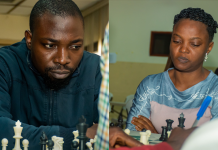
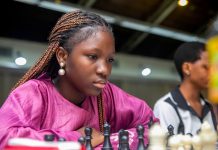


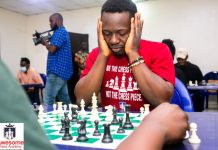
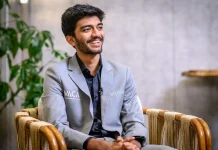

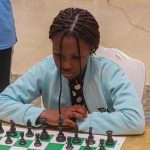




Great content! Super high-quality! Keep it up! 🙂
hi!,I really like your writing so a lot! proportion we keep up a
correspondence extra approximately your article on AOL? I require an expert on this area to solve my problem.
May be that is you! Taking a look forward to look you.